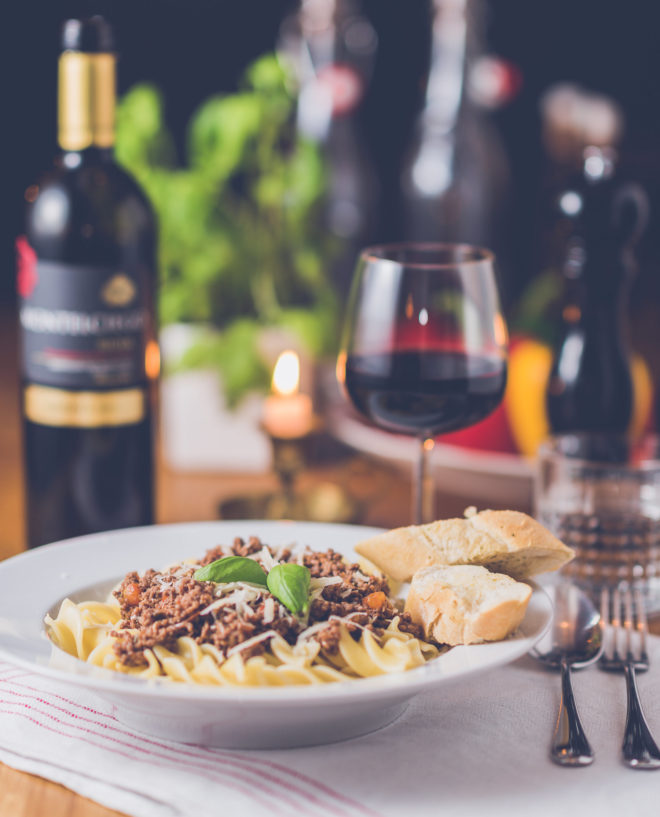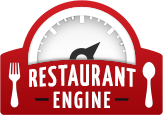Why Charge Corkage And What’s Too Much

What you charge depends on the area of the country you live in.
For years, the corkage fee has been a point of contention between restaurant owners and their patrons.
While your guests want the option of bringing their own wine, you, understandably, don’t want to miss out on the profits of selling from your own wine list.
In this article, we look at why charge corkage and what’s too much. We’ll take a look at what your patrons are willing to pay and how much you should charge.
First, let’s define the term corkage.
What is a Corkage Fee?
Corkage is the fee that restaurants charge customers who bring their own wine to a restaurant.
Your restaurant might charge a corkage fee to help cover your service, lost revenue from not selling your own wine and the risks of patrons breaking your wine glasses. (tweet this)
If you sell wine, you know that it’s highly profitable for your restaurant, and it’s not unreasonable to charge a corkage fee to make up for lost profits if you’re going to allow diners to bring their own.
How Much are Corkage Fees?
Typically, corkage fees range between $10-40 per bottle. Sometimes restaurants don’t charge a fee and even encourage diners to bring wine, while others charge $100 per bottle.
According to one expert, corkage fees depend on where you live.
- In Manhattan, New York, the fee averages $15-20 per bottle on average, yet at higher end restaurants, they can range from $30-85 per bottle.
- At exclusive restaurants, diners can expect to spend upwards of $400 per bottle, but this is only at the finest establishments.
- On the other side of the country, in Napa Valley, the corkage fee ranges from $15-20, while restaurants in San Francisco and Los Angeles start around $10 per bottle.
- Some restaurants charge fees based on the wine. For example, some charge a $10 corkage fee on wines less than 10 years old and $25 or more one wines brought in that are older than 10 years.
If you want to completely discourage your patrons from bringing their own wine, then charge a high corkage fee to encourage customers to buy your wine. (tweet this)
When Might You Waive a Corkage Fee?
You’ll find that some restaurants waive corkage fees under certain circumstances.
For example, you might waive one corkage fee if your patrons buy one bottle of wine from you.
You also might consider a $0 corkage fee evening. One evening per month or week, let patrons bring their own wine for free, and on the rest of the nights, only sell your own.
Consider one restaurant that waives its corkage fee on “Wine Wednesdays.”
Another restaurant waives corkage fees on American wines and charges it for all others.
Another instance where you might waive the corkage fee is if a customer brings in a very special bottle of wine and shares it with you.
Now let’s look at why your customer might want to bring their own wine in the first place.

It’s always nice when your guests offer you a taste of their special wine.
The Patrons Side of the Story
You’ll find there are several reasons your guests might want to bring their own wine.
First, the customer doesn’t want to pay your mark up on the wine and brings his own to save money.
If he can buy the same wine you sell for $30 less and pay your $15 corkage fee, he still comes out on the positive side.
Second, your customer might want to bring his own wine because your wine selection is grim.
If your restaurant doesn’t offer a respectable wine list, then you can bet your wine-loving patrons don’t want to drink from it. If you want to encourage people to drink your wine, you have to offer drinkable wine.
Finally, your guests might want to bring their own wine for a special occasion. For example, if it’s a birthday, wedding proposal or anniversary, and your customer has been saving a fine wine for the event, he might choose to bring it to dinner.
In this instance, go ahead and charge the corkage fee with a smile and be flattered that the patrons chose your restaurant for their special occasion.
The Restaurants Viewpoint
Many wine aficionados bristle at the thought of paying for wine at a restaurant. They would rather spend less and bring their own in to your restaurant.
Yet, if you’ve gone to the trouble of hiring a sommelier, and you’ve invested time and money into your wine list, you probably aren’t a fan of customers bringing in their own wine.
We’re going to leave you with some tips on how to avoid problems with the corkage fee so you can make the most of the your own wine list and patrons who want to bring their own:
- Know what your competition charges and use this as your guide.
- Be aware of the general corkage fees in your area.
- A good starting point is $10-20 per bottle.
- Improve your wine selection so guests don’t want to bring their own wine.
- Price your wine fairly to encourage patrons to buy from you.
- If you’re going to allow people to bring their own wine, and you charge a corkage fee, don’t be grumpy about it.
- Be flattered when a very special bottle of wine is brought in. This means your patron values your restaurant above all others.
- It pays to be flexible. You’ll find there are some occasions that merit waiving the corkage fee. A good bit of customer service goes a long way to repeat business.
- Consider waiving the corkage fee if your customer buys a bottle from you and also brings one of their own in. This is a win-win situation as you get the corkage fee without having to buy or store the wine.
Note: Alcohol Laws by State
In some states corkage fees are not allowed by state law. The reasons mostly focus on whether the establishment has an alcohol license. If the establishment does not there is no alcohol permitted at all even if patrons bring their own.
Final Thoughts
Finally, it is fair of you to charge a corkage fee because when patrons bring their own wine, you are losing a sale. Consider charging a corkage fee similar to the profit you are losing on an average bottle of wine.
This amount differs depending on the wine, so do your best to be equitable.
Now that you know how to solve the problem with the corkage fee and how much to charge, you’re well on your way to finding a happy medium.
At Restaurant Engine, not only do we create great, responsive websites, but we’ll make sure your wine list shines. Ready to take the plunge and create a website with an online menu, wine list, blog and beautiful photos? Get your free website consultation today!
Images: Quentin DR and Janko Ferlic


Finest Restaurants charge up to $400? Finest defined by their wine margins, perhaps. This is a list of justifications for the bad behavior of imposing a fee for nothing, no benefit to the consumer at all. Justify cost of sommelier? Perhaps if he cannot sell you a better wine for the same price or less. Often sommelieres are not available to diners, if one is used they are often consultants to the restaurant only, and not available during opening hours. If a highly rated restataunt has a $10 to $15 corkage, I will consider not opening my own. When it’s more, and I decide to drink wine I’ll buy no more than a single glass less than the fee. Restaurant experiences are highly variable and often emotionally laden, don’t insult your customers with a fine for buying only food. As a patron and you alone think the corkage to much, politely ask the manager to wave the fee. Any true story about why you brought that particular wine would help them agree or negotiate a lower price (have a fixed price in mind before you ask). If they won’t budge enjoy your meal without your wine and buying very little from them enjoy the food, tip the waiter a bit more than your usual, and decide if you will return before you leave and politely let them know either way before you go, and thank them if the reduced or waived the fee. If you”re trying to make a good impression on your guest, talk away from the table, but excuse to yourself and explain after dinner. If your guest isn’t impressed with your economy consider carefully if on date or interview, for example their reaction.
Wait… how is a corkage fee how a restaurant purchasing the wine? The patron pays the corkage fee so the restaurant doesn’t own the wine. Over two years and no one has pointed this out. Until now.
What about restaurants that charge a corkage fee for you buying THEIR wine
This article does not address legalities of corkage fees. According to liquor laws in TN, the reason for a corkage fee is that the restaurant must own any liquor consumed in the restaurant, therefore the corkage fee is basically the restaurant purchasing the wine being consumed. Legally you cannot not charge a corkage fee, is my understanding.